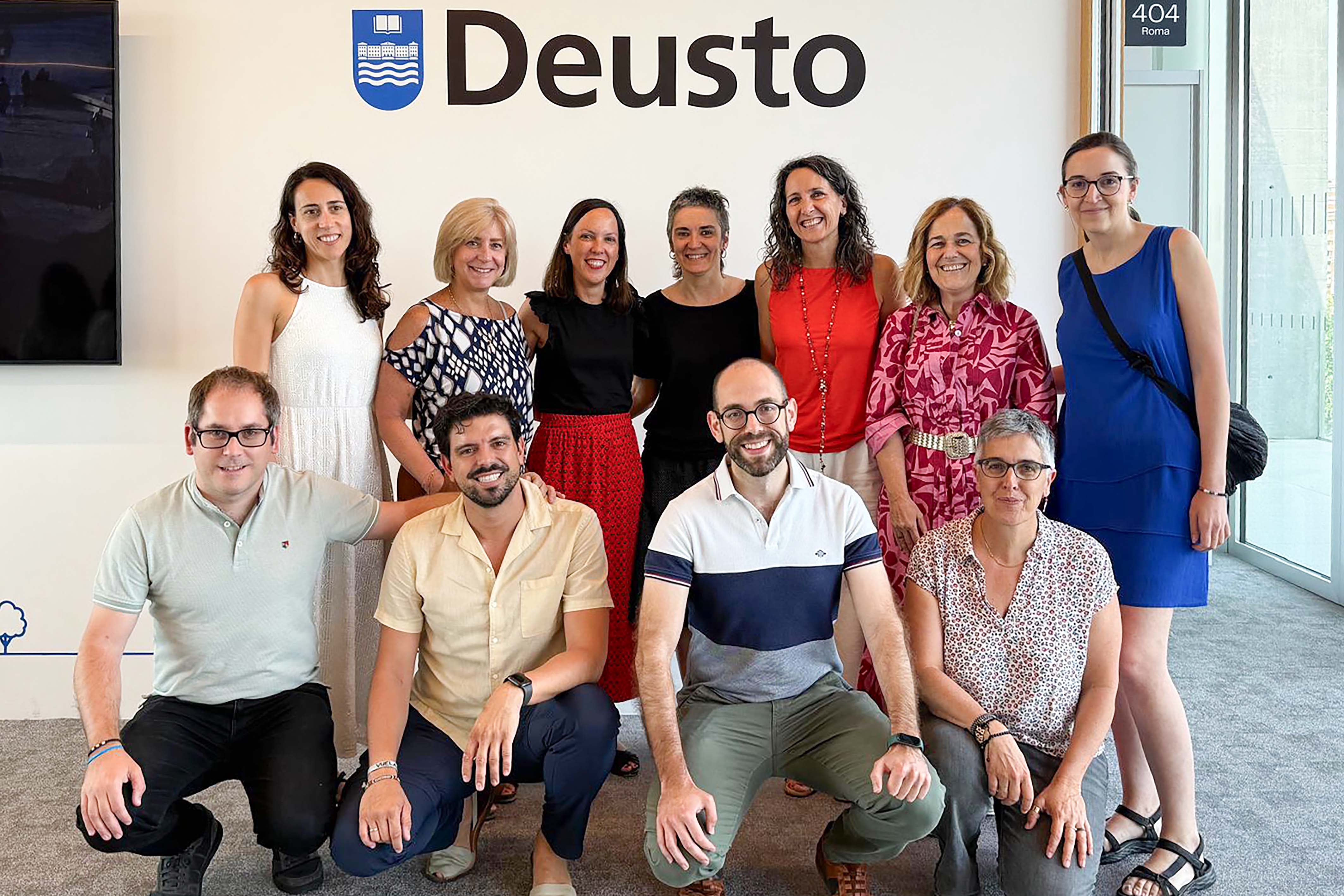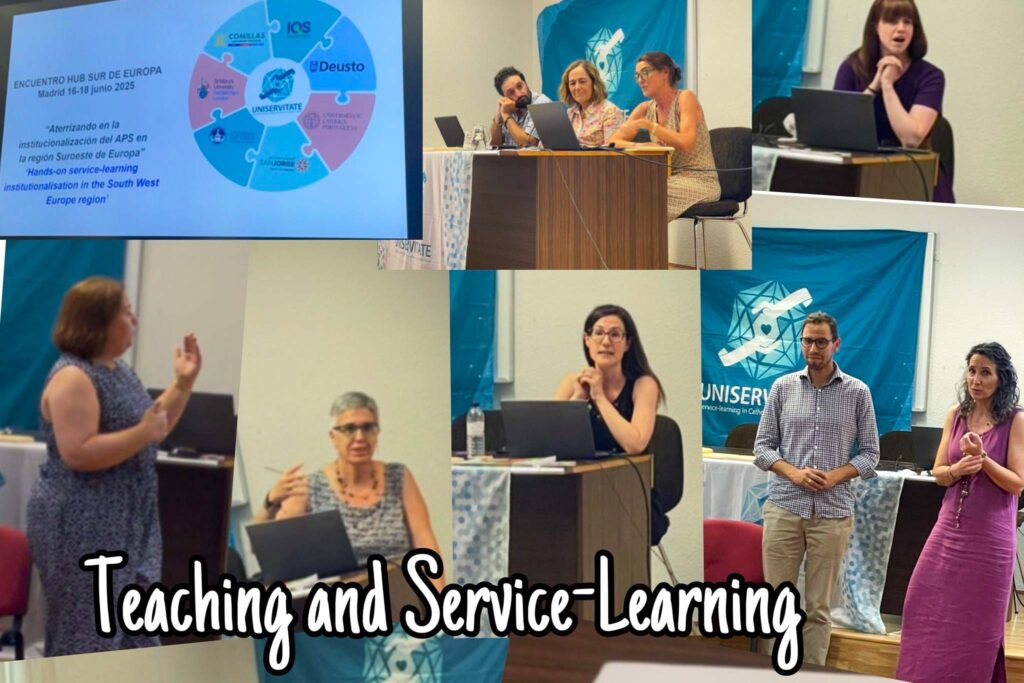The meeting of the Western Europe South Hub under the global UNISERVITATE program, an international initiative dedicated to the promotion and institutionalization of Service Learning in Catholic Higher Education Institutions, was recently held in Madrid from 16 to 18 June 2025. This meeting brought together universities from a wide array of countries to share best practices, reflect together, and strengthen Service Learning as a transformative pedagogical methodology.
IQS Participates in the UNISERVITATE Program’s Western Europe South Hub Meeting

As a member of UNISERVITATE since this past October, IQS actively participated alongside other institutions such as the University of Deusto, the Comillas Pontifical University, St Mary’s University (United Kingdom), and the Portuguese Catholic University. The meeting represented an abundant space for exchanges between professors, students, university administrators, researchers, and representatives from social organizations.
UNISERVITATE: a global network with an educational and transformational calling
The UNISERVITATE program, coordinated by CLAYSS (the Latin American Center for Service Learning) and featuring support from the Porticus Foundation, promotes the integration of Service Learning as a structural part of higher education in Catholic institutions around the world. In addition to regional meetings such as this most recent one, the program offers training, institutional guidance, an annual global symposium, and support tools such as Small Research Grants and the UNISERVITATE Award, a biennial recognition of Service Learning best practices in each region. In fact, IQS was a finalist in the last edition.
Participating universities at the event in Madrid presented concrete Service Learning projects developed in very diverse disciplines, from social sciences to engineering and health, highlighting the versatility of the methodology. The institutional support structures, implementation strategies, and evaluation mechanisms in each case were analyzed.
The meeting was attended by Robert Bringle, an international Service Learning expert who has been recognized for his work in the institutionalization of Service Learning at universities around the world, and Andrés Peregalli, global coordinator of the UNISERVITATE program through CLAYSS. Both guests gave in-depth presentations on the educational and community value of Service Learning, emphasizing its ability to generate meaningful learning and social transformation.
Looking ahead: towards a more cohesive global network

The Madrid meeting not only served to share best practices, but also to strengthen bonds between the participating institutions and establish joint lines of action for the future. In a global context that is increasingly interconnected and which faces challenges due to complex social issues, higher education plays a key role as a driver of change.
The UNISERVITATE network represents a strategic space for this transformation, offering support, training, funding, and recognition for institutions committed to education that serves the common good. Initiatives such as the UNISERVITATE Award, for which IQS already had the honor of being recognized as a finalist, highlight the real impact of Service Learning best practices both in communities and in university life.
With the renewed commitment and support of this international community, IQS is reaffirming its commitment to being a university that educates people who are capable of transforming the world with knowledge, values, and action.
New at IQS: Small Research Grant for comparative research in Service Learning
IQS has once again been selected to receive a Small Research Grant, awarded annually by the network to promote research in Service Learning within the university environment. This is the second consecutive time that IQS has received this backing.
This year, the funding will be used to carry out a systematic and comparative study of the various Service Learning implementation models at universities around the world. The objective is to analyze how the Service Learning methodology has been adapted to diverse cultural, organizational, and pedagogical contexts, identifying shared elements that contribute to effective integration, as well as the specific adaptations required by each institutional reality.
This work will contribute to generating applied knowledge, useful both for the IQS community itself and for other institutions that wish to implement or strengthen their model. In addition, it reinforces the position of IQS as an active agent in the international debate on higher education serving the common good.
Service Learning: a pedagogical tool for comprehensive education
Service Learning is a methodology that combines academic work with service to the community, establishing a reciprocal relationship between academic knowledge and real social needs. This promotes comprehensive education, the development of multidisciplinary skills, civic engagement, and critical thinking and social responsibility for students. In addition, it strengthens the bonds between universities and their communities, opening paths for an education rooted in the local area and context.









